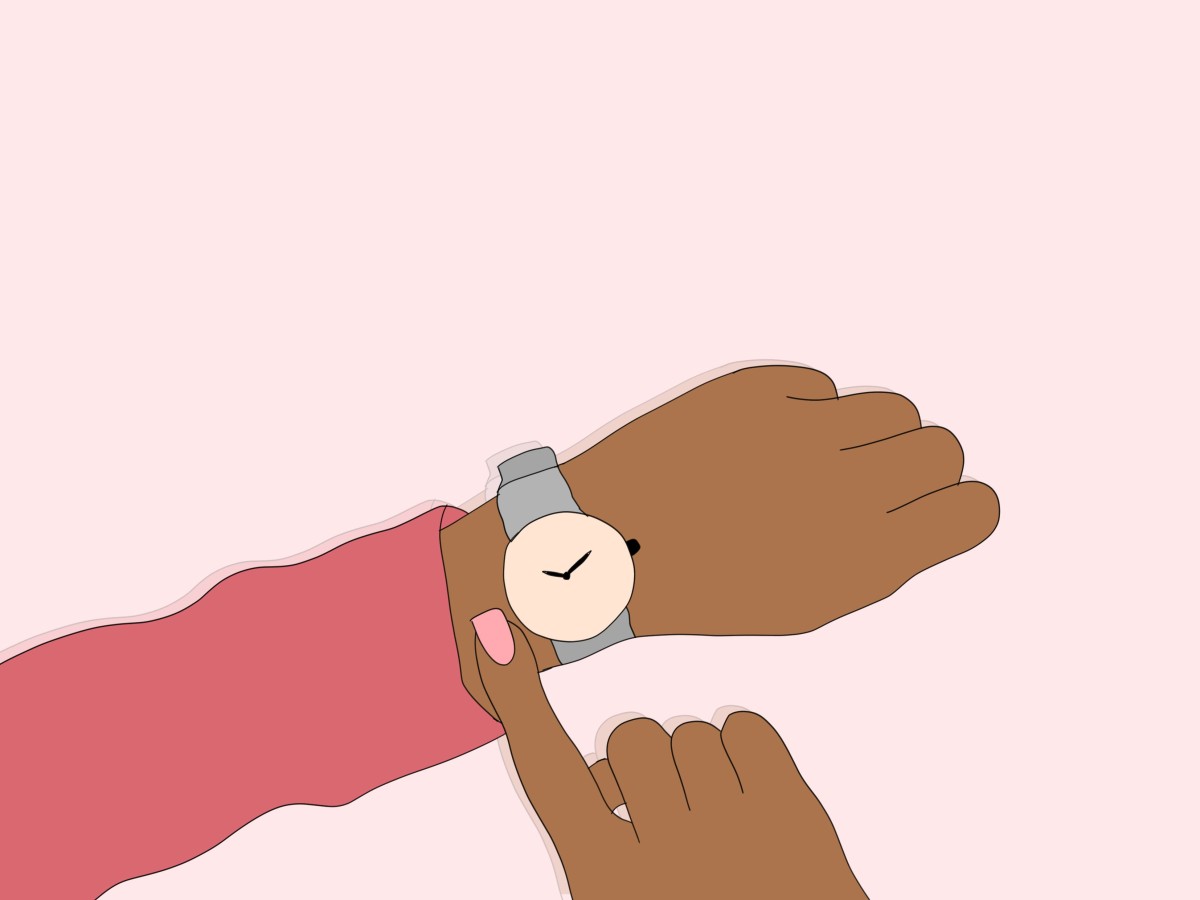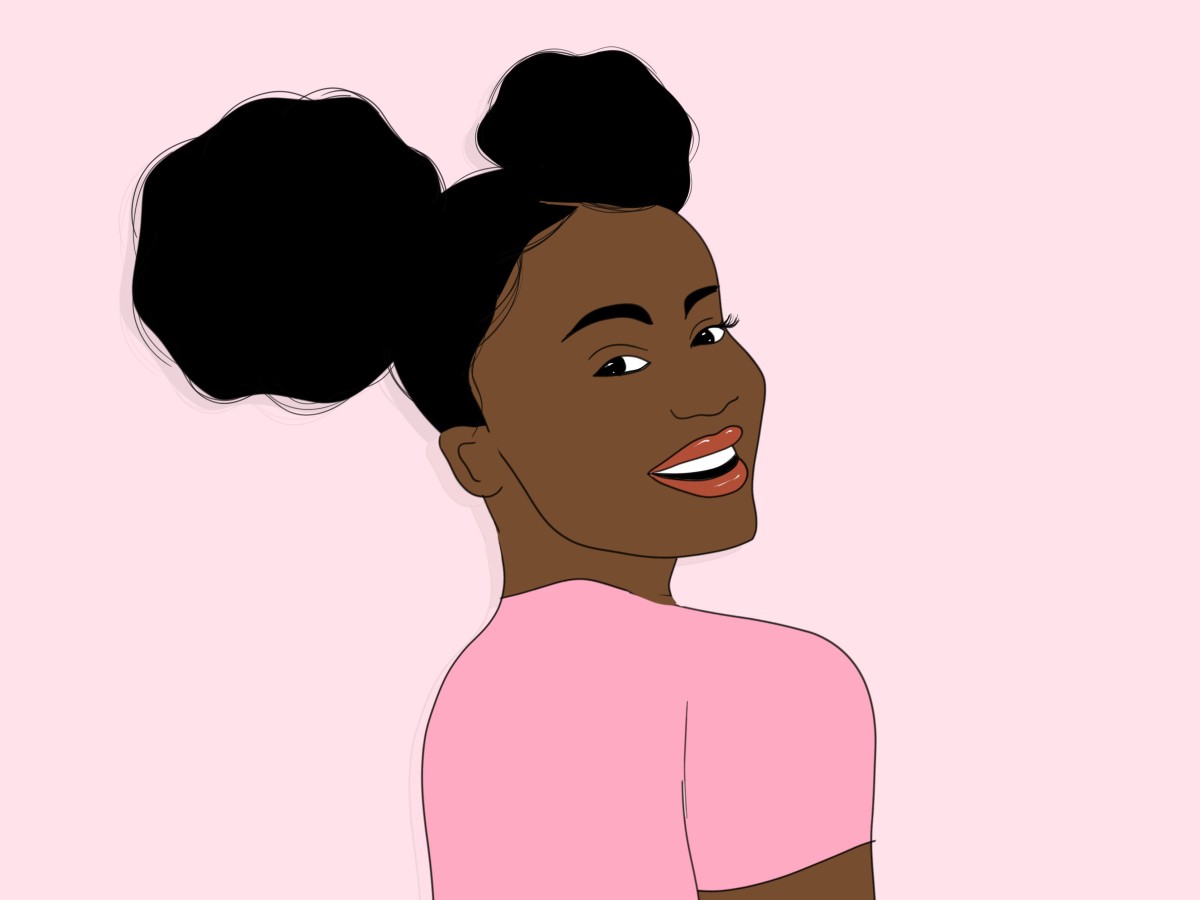Try to recall the first time someone commented on your hair. If your memory is really sharp, words like ‘good hair’, ‘bad hair’, ‘nappy’, ‘picky-picky’, ‘woolly’ or ‘furry’ might spring to mind. Descriptions of our hair so often hold negative phrases or animal epithets. Most of these ideas would have inevitably come from slavery. But even centuries later, these ideas of ‘unruliness’ have stuck. Why? Because the biggest player in the notions of conformity and ‘good hair’ is our concept of time.
Time is money
In one of my favourite books, Don’t Touch My Hair, Emma Dabiri explains that our modern 9-5 workday has created a scarcity of time. This scarcity has resulted in so many of us unknowingly aspiring to the “appropriation of our personal time” and using it to prove our success. Because of this, many of us have been taught that if we are not spending our time making money, especially for other people, we are not being productive.
But this is a phenomenon that’s been going on for centuries. Looking back through history, literature and films, the poorer classes have always worked longer hours (the average working day for adults in Britain was 16 hours). Compare that to the rich who spent their 16 hours tending to their homes and themselves, and it becomes obvious that time favours the wealthy. So, society has always been split between those who have money (the white upper classes) and those that don’t (the poor, immigrants and people of colour).
So, time really is money.
Today our work hours might be shorter, but pre-COVID, those of us doing the routine 9-5 life, commuting and even taking on a 5-9 hustle, lost a lot of our time in the pursuit of ‘valuable’ work. In the end, we were left with just enough time to squeeze in six hours of sleep to do it all again the next day. In all of this, it’s easy for Black women to fall into the trap of believing that the worst way to spend their time is by spending it on their hair.
Good hair vs bad hair

The commodification of time disproportionately favours white women when it comes to hair and beauty. The all-consuming rat race of the 9-5 means we centre a lot of our life around ‘neatness’ and ‘professionalism’ – terms we associate with sleek, straight hair. But for most Black women of West African descent, straight hair isn’t a natural state. Afro hair grows up and out, not down, so getting it to the socially acceptable standards of neatness takes longer. It can be more damaging, both to our strands and our mental health.
So, when do you have time to look after your hair in all of that?
The short answer is that you don’t.
I’ve never been able to run a brush through my hair and call it a day. Before locing my hair, I experienced real hair hate, mostly because I didn’t know how to look after it properly. Caring for it was tedious in the day-to-day running around for work. And getting locs didn’t make that process easier. Washing my hair can take up to three days, which often includes oil treatments and deep conditioning, followed by a rigorous round of scrubbing and twisting – and that’s on a normal day.
What’s more, I can’t run into just any shop for products if I run out. I have to schedule time to go to specific shops, which are often further away than the shop around the corner. Then, I have to mix my gels, water and oils to give my hair moisture throughout the week.
It’s a lot. So, when you’re always rushing to get back to work, it’s easy to feel guilty for the time you’re spending on your hair because we’ve been taught that this time isn’t valuable. But who says value only comes from working for others? Who says our hair isn’t valuable?
Time to breathe
When I was commuting to work, I was always tired even on my days off, and there never seemed to be enough time for my ‘hard to handle’ hair. But as crazy as it feels to say now, COVID was a game-changer for me. During the lockdown, days stopped meaning anything. Monday morning looked the same as a Friday afternoon, and weekends were just more Mondays. I had no perception of time because my day looked the same at 2 am as it did at 2 pm, and at times, I felt I had no real purpose.
And that was one of the things that I found really sad. Our purpose should never be to work. But my warped view of time left me unable to separate my identity from my employment. Meanwhile, I was neglecting a part of me that actually was a part of my identity. But during this time, self-care and self-love became hot topics, and I found myself gravitating towards that rhetoric and taking back my time. Once I got into the mindset of ‘my time, for my body’, I didn’t think twice about taking a little extra time in-between tasks to deep condition my locs – who was going to stop me? In this new dynamic, I was in control, and I was free to organise my day as I wanted.
So, it’s no surprise that my hair flourished around this time. With salons closed, I had to get into the groove of living my loc’d life. Without the stress of going into the office, I had the luxury of extending my wash hours into days. I did oil treatments regularly, deep conditioned it, did protein treatments, and tried an apple cider vinegar rinse for the first time. I even had the time to create elaborate twists and sit under my Carmen hairdryer for as long as I needed to without worrying about catching the train the next day or missing a deadline. And if I saw my hair needed a little extra help, I didn’t have to put it off until I could ‘find the time’ because I now had all the time in the world. In this new routine, I found peace.
And I intend to keep it that way for as long as possible. Like other Black women I’ve spoken to, I’m in no rush to return to the office. A Forbes survey found “that as many as one in three employees would be happy never to step foot inside their workplace again.” Self-care probably isn’t the main cause for this resistance, but I think experiencing the difference in how we feel when we use our time to look after ourselves is a major factor. COVID showed me that time is precious and often fleeting, so coming out of that, I don’t want to give any more of my time away to causes and people who don’t benefit me. And after seeing how much my mental health and hair health improved when I dedicated time to hair, you couldn’t make me go back.
There’s a story that says when British missionaries first encountered the Hawaiians working between the hours of 6 am to 1 pm and devoting the rest of their time to what they enjoyed, they called them lazy. We don’t know if this story is true or not, but what it does tell us is that higher powers have always tried to control how we spend our time.
As a Black woman who has always been taught that her hair is not worth the time, COVID was a massive wake-up call for me, as I think it was for many others. Taking control, and dividing my time the way I wanted, helped me realise that the extensive amount of care my hair needs is worth every minute. Taking four hours to care for your hair is every bit as productive as spending four hours working. Giving your time away will only benefit you so much, and being ‘money rich, time poor’ might help your pocket, but in the end, it will only hurt your relationship with yourself. We have to decide what’s worth placing value on, and for Black women who so often use hair as a measure of our self-worth, giving your hair that time is necessary.
Click to read Learning to my Afro
Find more beauty & style articles here >
Written by Zainab Raghdo
Illustrated by Francesca Mariama

